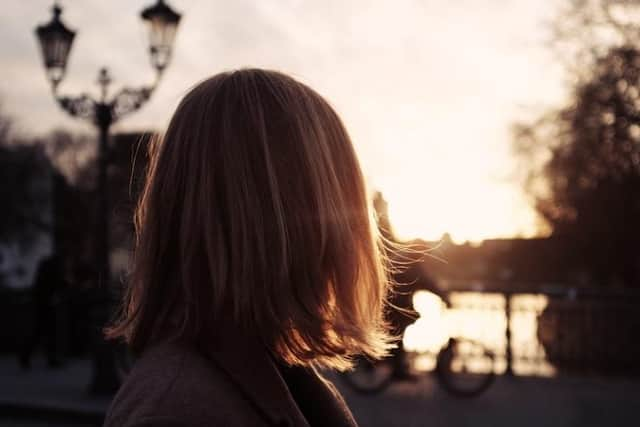Half of women feel unsafe walking alone in busy public spaces at night
and live on Freeview channel 276
Some 49% of women and one in five men (19%) felt unsafe walking alone after nightfall in a busy public place, such as a high street or railway station, according to the Office for National Statistics (ONS).
And the same proportion of women and 15% of men did not feel safe walking alone after dark on a quiet street near their home, according to the survey of 16,112 people aged 16 and over in Britain.
Advertisement
Hide AdAdvertisement
Hide AdIt is the first time the ONS has asked about people's perceptions of safety while walking alone in various public settings.


The survey ran in four waves between June 2-27.
Four out of five women (81%) and 39% of men felt unsafe walking alone after dark in a park or other open space.
Disabled people felt less safe walking alone in all settings, while those who had been harassed in the last year were more likely to feel unsafe.
Around a third (32%) of women and 19% of men had experienced at least one form of harassment in the previous 12 months.
Advertisement
Hide AdAdvertisement
Hide AdSome 63% of people who reported feeling unsafe during the day said they had altered their behaviour in the previous month.
This was the case for 42% of those who reported feeling unsafe after dark.
Actions they took included stopping leaving home alone, walking in quiet places and going to streets or areas they think are unsafe.
Women aged 16-34 and 75 and over were most likely to feel unsafe after dark in a public space or a quiet street near their home.
Advertisement
Hide AdAdvertisement
Hide AdThose aged 16-34 were also most likely to have modified their behaviour as a result of feeling unsafe during the day or night.
Nick Stripe, head of the ONS crime statistics branch, said: "This is the first time the ONS has asked people about feelings of personal safety when walking alone in different public settings.
"We explored how those feelings are influenced by personal experience of harassment and if they affected behaviours.
"There are some clear findings: men and women both feel less safe after dark, but the extent to which women feel unsafe is significantly greater.
"Disabled people, too, are more likely to feel unsafe, even in the daytime in busy public places."